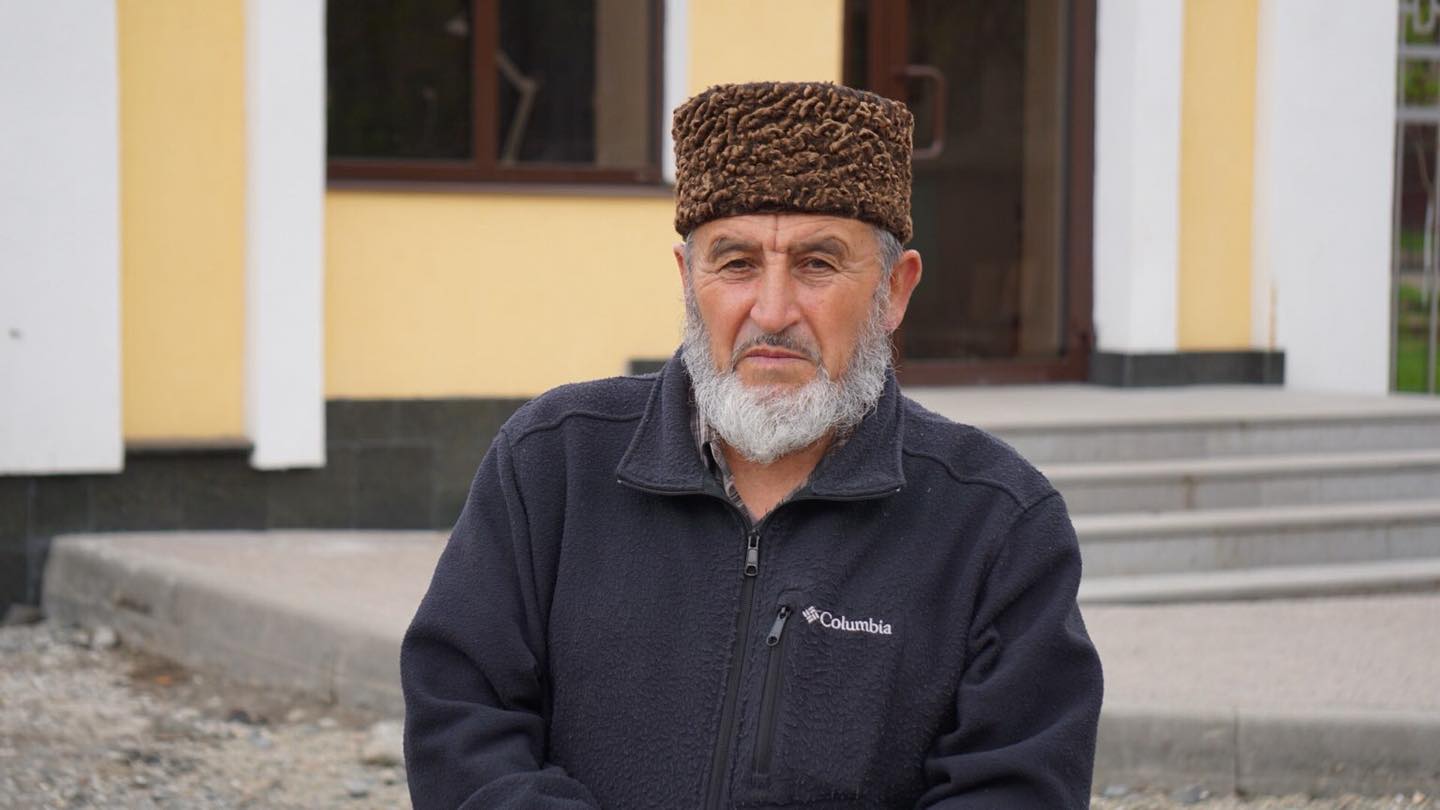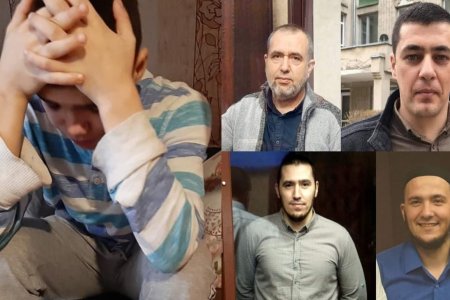
Russian enforcement officers turned up at the home of Enver Seitmemetov on 25 November and took him away, to the so-called ‘centre for countering extremism’. The 74-year-old Crimean Tatar historian and uncle of three political prisoners is now facing prosecution under flawed legislation outlawing comparison between the actions of the USSR and Nazi Germany. The charges are over entirely legitimate comments about Stalin’s 1944 Deportation of the entire Crimean Tatar people.
The 1944 Deportation is recognized as genocide not only by Ukraine, but by all the Baltic Republics; Canada; Poland; the Czech Republic and the Netherlands. The current Russian regime has largely avoided mention of such crimes, rather than openly deny them, but banned the traditional remembrance events around the anniversary on 18 May immediately after its invasion and annexation of Crimea. Every year, on the eve of this anniversary, prominent Crimean Tatars receive official ‘warnings’ about the inadmissibility of violating Russia’s legislation on ‘extremism’, with this how the Russian aggressor state views honouring the memory of the victims of a horrific crime.
It is worth noting also that the occupation regime attempted to reinstate the lies, first used by Stalin to justify the Deportation in a 2019 Tenth Grade ‘textbook’ entitled ‘The History of Crimea’. The outrageous lies were removed but only after a major scandal and, given Russia’s current aggressive rewriting of ‘history’, there may well be new attempts to slip them in.
According to the ruling presented to Enver Seitmemetov on 25 November, the occupation police supposedly ‘found’ a reposted video on the Crimean Solidarity website, first published on 18 May 2020. The video was reposted on the same website on 18 May this year, to mark the 81st anniversary of the Deportation.
On this video, Enver Seitmemetov spoke of the limitations of the current human rights legislation and laws on the United Nations. He went on to say: “Not only the Nuremberg Trials should have … I think that there should have later been another international court which would have sentenced those very victors.”
The Crimean Tatar historian is by no means alone in expressing this view. Stalin’s Soviet Union, which had collaborated with the Nazis until 22 June 1941, ended WWII on the same side as the Allies and in a dangerously strong position politically. Those responsible for the Holodomor, for the 1937 Terror, the Gulags, the 1944 Deportation and other crimes were effectively never held to answer. Under Vladimir Putin, Russia has increasingly sought to muffle or positively whitewash the crimes, and ‘rehabilitate’ the perpetrators, in particular, Stalin.
One of many methods used is flawed and repressive legislation, including the administrative charge which Enver Seitmemetov is now facing. Article 13.48 of Russia’s administrative code imposes administrative liability for publicly equating “the aims, decisions and actions of the Soviet leadership with the aims, decisions and actions of the leaders of Nazi Germany, as well as for denying the decisive role of the Soviet people in the defeat of Nazi Germany.” *
The ‘centre for countering extremism’ enlisted a supposed ‘expert’, O.V. Romanko, to analyse Enver Seitmemetov’s words. The resulting assessment concluded that Seitmemetov, in his interview, “likens the actions of the Soviet leadership, linked with the forced removal of the Crimean Tatars, Greeks and others in May 1944, to the crimes of the leadership of Nazi Germany.”
Crimean Solidarity reports that Seitmemetov’s ‘case’ was handed to occupation ‘magistrate’ Sergei Moskalenko. The latter began proceedings, but then postponed the hearing until 2 December 2025, with Seitmemetov then released.
These are all political proceedings and there is next to no chance that Enver Seitmemetov will not be ‘convicted’ of this absurd charge. He faces either a fine or administrative arrest.
Persecution by family
Three of Enver Seitmemetov’s nephews and all of the sons of another renowned Crimean Tatar historian, Shukhri Seitumerov, are political prisoners.
Seitumer Seitumerov (1988), his brother Osman Seitumerov (b. 1992) and their uncle Rustem Seitmemetov (b. 1973) were arrested on 11 March 2020, together with gravely ill Crimean Solidarity civic journalist Amet Suleimanov (b. 1984).
The brothers’ great-grandfather was executed during Stalin’s Terror for supposed ‘counter-revolutionary terrorist propaganda’. 80 years later, Russia’s occupation regime used chillingly similar charges for its own show trials and politically motivated sentences against men who had not committed any crime. On 29 October 2021, ‘judges’ Igor Kostin (presiding); Roman Plisko and Yevgeny Zviagin from the Southern District Military Court in Rostov (Russia) sentenced Seitumer Seitumerov to 17 years; Osman Seitumerov to 14 years; Rustem Seitmemetov to 13 years and Amet Suleimanov to 12 years. There was no way that they did not know that the latter was a death sentence, with grounds for concern also about the health of Rustem Seitmemetov. All of the sentences were for the worst of Russian penal institutions, with the first 3.5 years in a prison, where the conditions are especially harsh. They were upheld on 9 February 2023, by ‘judge’ Aleksandr Aleksandrovich Mordovin from the Military Court of Appeal in Vlasikha (Moscow region).
The FSB came back, two years after the first arrests, and seized the last son - 23-year-old Abdulmedzhit Seitumerov who had just become a father. He is currently on ‘trial’, with it tragically clear that he and the men arrested with him face similar sentences on profoundly flawed charges and after proceedings which flagrantly violated the men’s right to a fair trial.
See:
Death sentence and persecution of Crimean Tatar family in Russia’s war against Crimean Solidarity
Dangerously ill Crimean Tatar political prisoner ‘not allowed’ life-saving medication
See also:



